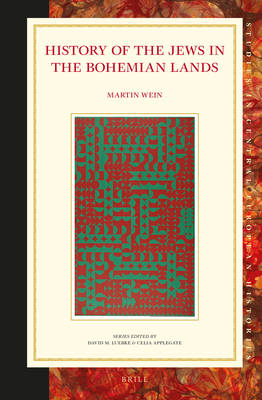
- Afhalen na 1 uur in een winkel met voorraad
- Gratis thuislevering in België vanaf € 30
- Ruim aanbod met 7 miljoen producten
- Afhalen na 1 uur in een winkel met voorraad
- Gratis thuislevering in België vanaf € 30
- Ruim aanbod met 7 miljoen producten
Zoeken
Omschrijving
In History of the Jews in the Bohemian Lands, Martin Wein traces the interaction of Czechs and Jews, but also of Christian German-speakers, Slovaks, and other groups in the Bohemian lands and in Czechoslovakia throughout the first half of the twentieth century. This period saw accelerated nation-building and nation-cleansing in the context of hegemony exercised by a changing cast of great powers, namely Austria-Hungary, France, Nazi Germany, and the Soviet Union. The author examines Christian-Jewish and inner-Jewish relations in various periods and provinces, including in Subcarpathian Ruthenia, emphasizing interreligious alliances of Jews with Protestants, such as T. G. Masaryk, and political parties, for example a number of Social Democratic ones. The writings of Prague's Czech-German-Jewish founders of theories of nationalism, Hans Kohn, Karl W. Deutsch, and Ernest Gellner, help to interpret this history.
Specificaties
Betrokkenen
- Auteur(s):
- Uitgeverij:
Inhoud
- Aantal bladzijden:
- 356
- Taal:
- Engels
- Reeks:
- Reeksnummer:
- nr. 61
Eigenschappen
- Productcode (EAN):
- 9789004301269
- Verschijningsdatum:
- 15/10/2015
- Uitvoering:
- Hardcover
- Formaat:
- Genaaid
- Afmetingen:
- 160 mm x 239 mm
- Gewicht:
- 589 g

Alleen bij Standaard Boekhandel
+ 534 punten op je klantenkaart van Standaard Boekhandel
Beoordelingen
We publiceren alleen reviews die voldoen aan de voorwaarden voor reviews. Bekijk onze voorwaarden voor reviews.








